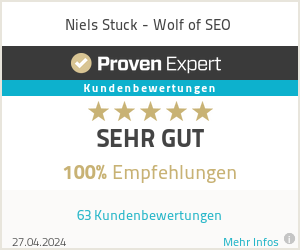Definition
A Domain extension is a specific identifier at the end of an Internet address that indicates the type of website that is behind the address. The last digits after the last dot are called the top-level domain or TLD designated.
Use cases
Domain extensions can be used in many different cases. They are useful for segmenting web content by country and region, making websites easier to find. They are also useful for categorizing websites by content. For example, extensions like .org or .gov can be used to indicate that it is an organization or government agency.
Examples
A common example of a domain extension is .com. It is usually used to indicate that there is a business website behind the address. Another common example is .org. This is usually used to indicate that it is an organization or a non-profit organization.
What are the components of a domain?
A Domain name essentially consists of three parts: a Subdomaina second-level domain and a top-level domain. But you can break it down even further, so let's take a look.
Subdomain
A Subdomain is a domain that is part of a larger domain in the hierarchy of the Domain Name System (DNS) is. Subdomains are an easy way to create a memorable web address for specific or unique content on a website.
For example, you could use a Subdomain to make it easier for users to remember and navigate to a website's image gallery by placing it in the gallery.example.com address, as opposed to example.com/media/gallery. In this example, the Subdomain gallery.example, while the main domain is example.com. Sometimes a Subdomain also known as a child domain.
8 examples of subdomains:
| Subdomain-URL | Benefit | Explanation |
|---|---|---|
| blog.example.com | Separation of main website and blog | This Subdomain could be used to separate the blog from the main website in order to better organize it. |
| store.example.com | Separation of main website and online store | This Subdomain could be used to separate the online store from the main website in order to better organize it. |
| support.example.com | Provision of support information | This Subdomain could be used to provide support information and documentation to make it easier to find and manage. |
| en.example.com | Provision of content in different languages | This Subdomain could be used to provide content in different languages, for example for users who prefer English. |
| en.example.com | Provision of content in different languages | This Subdomain could be used to provide content in different languages, for example for users who prefer German. |
| fr.example.com | Provision of content in different languages | This Subdomain could be used to provide content in different languages, for example for users who prefer French. |
| staging.example.com | Provision of test and development environments | This Subdomain could be used to provide test and development environments in which new functions and content can be tried out before they are made available on the main platform. |
Top-level domain or TLD
A top-level domain or TLD is a term you may have come across when searching for the perfect domain name. TLD is just a fancy term for the extension of your domain name. The domain extension is the letters to the right of your second-level domain. A simple example of this is .COM or .ORG. If someone from a TLD he means only the ending.
Here are ten examples of top-level domains and some possible uses and explanations:
| Top-level domain | Benefit | Explanation |
|---|---|---|
| .com | Popular general domain | The .com top-level domain is the most common general domain and is used for different types of websites. |
| .net | Popular domain for network services | The .net top-level domain is often used for network services such as Internet service providers and corporate networks. |
| .org | Popular domain for nonprofit organizations | The .org top-level domain is often used for charitable organizations and other non-profits. |
| .edu | Popular domain for educational institutions | The .edu top-level domain is often used for educational institutions such as universities and schools. |
| .gov | Popular domain for government agencies | The .gov top-level domain is often used for government agencies and organizations. |
| .biz | Popular domain for business companies | The top-level domain .biz is often used for small and medium-sized businesses. |
| .info | Popular domain for information sites | The top-level domain .info is often used for information sites such as news portals and encyclopediae. |
| .me | Popular domain for personal websites | The .me top-level domain is often used for personal websites and blogs. |
| .tv | Popular domain for media companies | The .tv top-level domain is often used for media companies such as television stations and video-on-demand services. |
| .co | Popular domain for startups and companies | The .co top-level domain is often used for startups and other businesses that want a short and memorable domain. |
There are many more top-level domains, but these should give you an idea of how they can be used and what benefits they can have.
Generic top-level domain or gTLD
A generic top-level domain (gTLD) refers to domain extensions that are generic in nature. Google recognizes them as generic, and you can register them all for your business or personal domain name. Some of the most common are .XYZ, .ONLINE, etc. There are literally hundreds, so good luck!
| gTLD | Benefit | Explanation |
| .biz | Business use | Intended for companies and business activities, but is also used by individuals. |
| .name | Personal use | Intended for individual names and families in the web address. |
| .per | Professional use | Intended for professional services and individuals, requires verification of qualifications. |
| .coop | Cooperatives | Intended for cooperatives, requires membership in a cooperative. |
| .travel | Travel Industry | Intended for companies in the travel and tourism industry. |
| .museum | Museums | Intended for museums and exhibition venues, requires verification of accreditation. |
| .aero | Aviation | Intended for companies and organizations in the aviation industry. |
| .jobs | Jobs | Intended for job listings and employers, requires a validity check. |
| .eco | Sustainability | Intended for organizations and companies focused on sustainability and environmental protection. |
Country code top-level domain, or ccTLD
A country code top-level domain (ccTLD) refers to custom domain extensions that are region- or country-specific domains. A simple and popular example of this is .CA (Canada) or .JP (Japan). Undoubtedly, you have seen these domains online or even visited a website with a country-code domain.
| CCTLD | Benefit | Explanation |
|---|---|---|
| .de | Popular domain for German language websites | The CCTLD .de is often used for German-language websites and is the most commonly used CCTLD in Germany. |
| .fr | Popular domain for French language websites | The CCTLD .fr is often used for French-language websites and is the most commonly used CCTLD in France. |
| .co.uk | Popular domain for UK websites | The CCTLD .co.uk is often used for UK websites and is the most commonly used CCTLD in Great Britain. |
| .ru | Popular domain for Russian language websites | The CCTLD .ru is often used for Russian-language websites and is the most commonly used CCTLD in Russia. |
| .cn | Popular domain for Chinese websites | The CCTLD .cn is often used for Chinese websites and is the most commonly used CCTLD in China. |
Sponsored top-level domain or sTLD
At the beginning of this article we have already mentioned some meanings of sponsored top-level domains. Basically, a sponsored top-level domain (sTLD) is used by certain niches and is not allowed for the general population or general customers. Two of the most popular ones are .GOV and .EDU.
The .GOV domain is only available to and used by the U.S. government. The .EDU domain is an extension available for registration only to post-secondary educational institutions and related organizations.
In order to use this domain extension, the entity in question must be based in the U.S., legally organized in the U.S., or recognized by a U.S. state, territory, or federal agency.
Advantages
Domain extensions have many advantages. They make it easy for people to identify what type of website they are visiting. For example, a web address ending in .com indicates that it is a business website, while a web address ending in .edu indicates that it is a website of an academic institution. In addition, domain extensions are useful for segmenting web content by country and region, which can help make websites easier to find.
Disadvantages
However, there are also some disadvantages to using domain extensions. For one, it can be difficult to find the best extension for a particular website. There are a limited number of extensions available, and sometimes it can be difficult to find one that fits the type of website you want to create. In addition, it can also be difficult to buy the right extensions, as they can be costly and sometimes unavailable.
Conclusion
When you choose a domain extension, there are several points you should keep in mind:
- Geographic Audience: If your main audience is located in a specific country, a country-specific domain extension (ccTLD), like .de for Germany or .fr for France, can be helpful. It signals to search engines and users that your content is relevant to that specific country.
- Availability: The most desirable and well-known extensions like .com are often already taken. You might be lucky and find your desired domain with a less common extension like .info or .biz. But beware, some of these lesser known extensions have a bad reputation because they are often used by spammers.
- Credibility and professionalism: Some domain extensions, such as .edu or .gov, are reserved for only certain organizations or institutions and can therefore convey a high level of trust and credibility. A .com domain is often considered universal and professional, while a .net domain is often associated with technology or networking companies.
- Search engine optimization (SEO): There is some evidence that the domain extension can have an impact on SEO. Country-specific extensions can perform better in local search results. However, many other factors play a far greater role in your Rankingsuch as the quality of your content and your Backlinks.
- Branding and memorability: Sometimes a creative or industry-specific domain extension (gTLD) like .store or .blog can give your branding a boost and be easier to remember. For example, imagine a domain like "blumen.store" - short, concise and easy to remember!
Remember, you don't have to secure just one domain extension. Many businesses secure multiple matching domain extensions to protect their brand and attract more webTraffic attract
Finally, the choice of domain extension is important, but it is only a small part of a successful online presence. Focus on creating quality content and strong branding, these are the keys to success!
« Back to Glossary Index






 By
By 